Premium Only Content
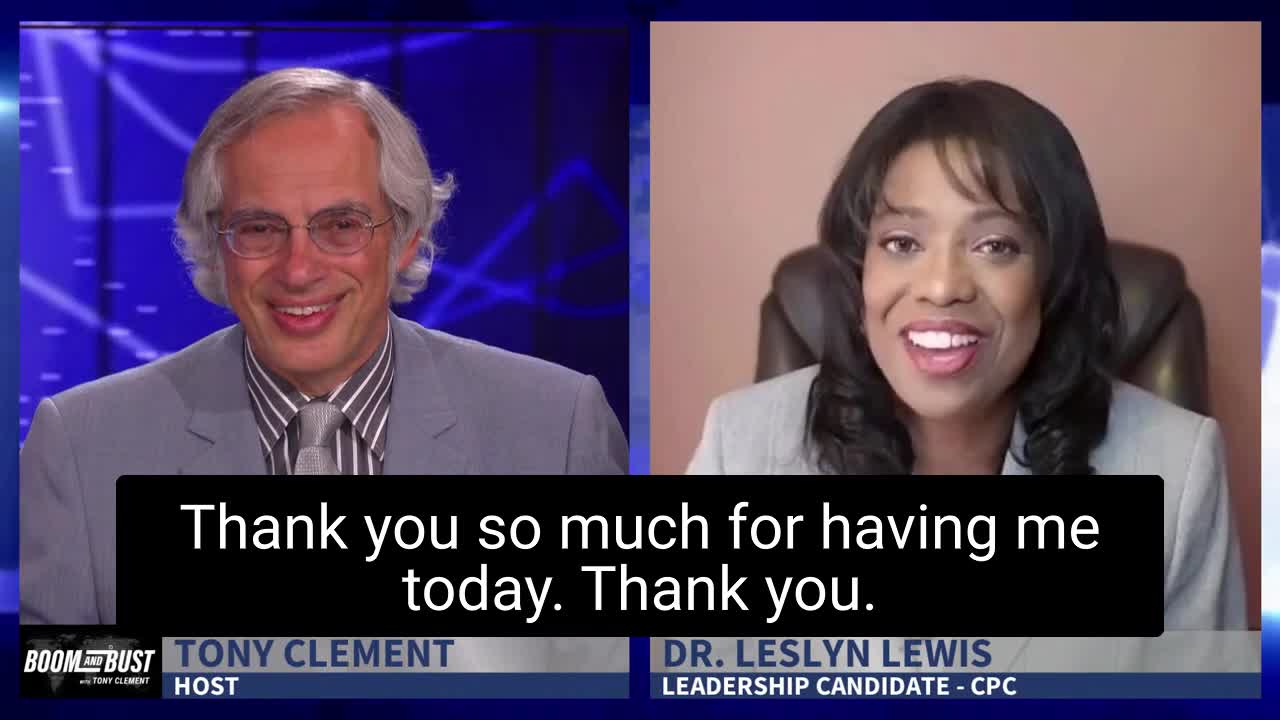
Leslyn Lewis interviewed by Tony Clement on Boom and Bust
Welcome to another episode of Boom and Bust.
I'm your host, Tony Clement.
I'm here at the News Forum, where all voices matter.
Boom and Bust.
Welcomes back to the program. Dr.
Leslyn Lewis, who is a member of Parliament
for Haldiman-Norfolk and a candidate for the
leadership of the Conservative Party of Canada.
We'll talk about her policies and plans
as this leadership race heats up.
Welcome back to the program, Leslyn.
Thank you for having me again, Tony.
Well, you're running again for leaders, so maybe you could
just give our viewers a little bit of an introduction
to yourself and why you've decided to run again.
Well, as you know, I ran in 2020 and I did well.
I was able to get the popular vote on the
second ballot and that was really as a relative unknown.
And so I decided to focus on a lot
of the issues that I focused on in 2020.
And that was basically uniting the country and starting
from the perspective of uniting the party, making sure
that every sector of our party has a voice,
whether you're a social conservative, a progressive conservative, a
libertarian, or a fiscal conservative.
We need to unite because we represent a
microcosm of what Canadian society looks like.
And I think if we can unite and
form strong policies, we can lead the country.
Can you tell us a little bit
more about some of the themes that
you're communicating as a leadership candidate? Sure.
So the economy is something that's very big.
I think that we need to get our economy in order.
We need to deal with the carbon tax,
which I would eliminate the carbon tax.
We also need to do this while
we're maintaining an environmentally sustainable practices.
And so I don't see the environment
as mutually exclusive from economic development.
And so I'd like to have policies
that highlight both those strengths, protecting the
environment while growing our economy.
So let's talk a little bit more about, I guess,
the woes that Canadians are suffering through right now.
I'm sure on the campaign trail you've heard
stories from people who are going through some
tough times, whether it's inflation, cost of living,
housing prices, all of these things are impacting.
So tell us a little bit more about
your thoughts on these kinds of issues.
Well, all of the above the average person is
complaining about, even if they own their own home,
there are things that are impacting on them, such
as cost of increase in heat, hydro, food costs.
This is extremely exacerbated for people who
are on fixed incomes, like people who
are on disability and pensioners.
So housing affordability, not just housing,
is a really important issue.
As I said, again, the carbon
tax is also an important issue.
There are also people who were let off
of work because of their medical choice.
And so with the announcement yesterday eliminating the mandate
and returning a lot of federal workers to their
source, of employment that will also alleviate some of
the pressures that those sectors specifically felt.
So there are many people who were laid off because
of choices that they made and also with the economy,
because of COVID, with many companies closed down.
I spoken to people all over the country,
for example, business owners, small business owners who
had a very difficult time, restaurants who had
a difficult time finding people to work.
And some of them even had to do the drastic
thing, Tony, of shutting down a few days a week.
Not because they didn't have it's the clientele, they
had the clientele, but they didn't have the workforce
in order to get the work done.
And that is I've seen that in restaurants,
I've seen that in industries and manufacturing sector.
And so we need to make sure that we
have the ability to get people back to work,
to retrain them, to have retraining programs and to
fill that void that we have within the workplace.
Is the federal government doing anything
in these areas right now?
Well, there is talk about bringing in
skill trade workers and meeting with employers
to find out what these needs are.
I personally, my immigration policies are more focused on
making sure that we meet the needs of Canadians.
I think it's very important that we craft policies around that
and so we have to look to fill those voice.
Even in the writing that I live in,
COVID was really catastrophic and many of the
policies altered how they could bring in seasonal
farm workers and seasonal agricultural workers.
Welcome back to Boom and Bust.
I'm your host Tony Clement, here with Dr. Leslin Lewis.
She is a member of Parliament and also a candidate
for the leadership of the Conservative Party of Canada.
Leslyn, it appears that a lot
in this country just isn't working.
Whether it's pipelines getting pipelines built or Pearson Airport,
it's a little bit of a mess, quite frankly.
And I would say that probably a lot of the
criticism is being directed to the federal liberal government right
now because of their inability to get anything done.
Is this something that you've heard in your
tour around the country as a leadership candidate?
And if so, what have you been saying about this?
Absolutely.
People are very concerned that our economic policies
were very short sighted and especially when it
comes to the natural resource sector.
When we look at the fact that we
have the third largest accessible oil reserves on
this planet and yet we leave that unpacked.
We also import over 500,000 barrels of oil
every single day.
We know that in Europe 40% of
their oil is acquired from Russia.
We have the capacity to supply the
world with our liquefied natural gas.
If we had had the foresight to build, to construct
pipelines, to get our products to tide water, to be
able to sell our products abroad, not only would we
be repatriating those revenues back to our country.
But we would also be helping with
diminishing our impact on the environment by
selling clean products like liquefied natural gas
to countries that have high coal production.
So the fact that we weren't able to do
that affects not only the environment, but it affects
our bottom line, it affects our revenue.
And I think it was very, very short-sighted
for the liberals not to consider optimizing
one of our greatest strengths like that.
And Pearson Airport, any comments on the chaos there?
Well, a lot of the chaos was due to
the fact that people who were vaccinated were being
treated like criminals coming into their own countries.
They still had to take tests and
the unvaccinated couldn't fly at all.
And so we needed to make sure that especially
now in the summertime, people are coming here as
tourists and they are jumping through hoops in order
to meet the demand of our country's travel mandates.
And these mandates are not anywhere else in the world.
So I do have to say that I'm glad that
the liberals finally were able to change this policy and
to do something about the backlog that we see, the
clock that we see at the airport.
But also there's concern about the ArriveCanada app
that's also slowing things down.
Many seniors have complained that they are just not
smart phone savvy and that there needs to be
an alternate mechanism for them to be able to
comply with the ArriveCan app without having it
on their phone, which many of them don't have.
Just returning to pipelines for a moment and
you talk about liquefied natural gas as well.
A lot of these will be of economic boom for
our First Nations, our indigenous peoples, and yet again, not
a lot of action from the federal liberals.
Is this something you're concerned about?
It is, because resource sharing agreements is something
that in speaking with First Nations communities, they
see this as a way to really address
on reserve poverty and to uplift themselves.
They don't want handouts. They want to be able
to be partners in development and in resource development.
And this is a good opportunity for them to
change the dynamics on reserves by eliminating unreserved poverty.
And the fact that the liberals are not seeing
this opportunity means that these reserves are kept stagnant
and it's something that the chiefs on the reserves
are very interested in engaging it.
And do you think that there could be appropriate
partnerships with a lot of these indigenous reserves?
Oh, there has been and there will continue to be
if the political will is there to do that.
And these reserves want to be able to
address some of the problems that are keeping
them stagnant, such as having clean water.
These resource sharing agreements would be able
to address that.
Internet. Even young people on the reserves are not able
to engage in educational programs and vocational
programs because of poor Internet connectivity.
These are things that could be addressed
through infrastructural development which would come from
these types of resource sharing agreements.
Leslyn, obviously, one of the areas where conservatives seek
to do better is in certain urban ridings.
I think of Toronto, I think of Montreal, I
think of Vancouver, where conservatives haven't had that historic
success in the last three election cycles anyway.
Do you have plans to sort of tackle urban issues
and that disconnect that the party has currently?
I think that what we need to do, Tony,
is we actually need to physically get into those
areas and to let the people understand that their
values are reflected in our party.
Many people that live in the urban areas,
a lot of them are from immigrant backgrounds.
And inherently they share our
values, they share conservative values.
But we haven't been able to connect with them
on a values level to let them know that
there is a place within our party for them.
And that's some of the work that I intend to do
do, that I intend to continue to do because it
is a very important part of winning the next election.
Are there kind of policy areas I
guess housing would be one of them.
That springs to mind immediately because
that's an issue everywhere, of course,
but particularly in our urban areas.
Or are these the kinds of things that
we would be talking about or the conservatives
would be talking about, rather, when they are
seeking to campaign under your leadership? Absolutely.
Housing affordability is something that is
very pressing for urban areas.
It's pressing for all over the country, but specifically
in urban areas where the cost of housing has
just skyrocketed and it is an issue of supply.
We just do not have enough supply.
And although the liberals said that they intend to
build 100,000 homes, I think when you look at
the stress on the urban areas, the number needs
to probably be closer to 1 million homes.
And what we have to do is start looking at the infills.
We have a lot of urban spaces,
too, that we just have not developed.
In addition, we have a lot of crown lands
that is just sitting there that are close to
urban areas that we also have not developed.
I think we need to incentivize
builders to purchase that land.
And perhaps what we could do is we could
reduce some of the costs for, say, the development
cost that would be passed on to the purchasers
so that we can make housing more affordable.
We also have to look at making sure that we are
optimizing housing, that we have the densities to be able to
deal with the high density capacity within the city.
So that's a major issue.
Housing affordability actually great points.
And connected to that, of course, is the
Conservative Party's failure over the last against three
election cycles to connect with millennial voters and
now Generation Z, millennial voters.
Do you have any thoughts on your candidacy and
how you can connect with those voters as well?
Affordability is big for them.
When you speak to them, that's the first thing
that comes out of their mouth, that they don't
want to continue to live in their parents basement.
They want to have the dream of
being able to own a home.
They want to be able to fill up their gas tank.
And if they don't have a car, they want
to be able to have affordable, accessible transportation.
And so to transfer payments from the government,
from the federal government to provincial government, we
can deal with things like infrastructural development that
will affect the areas such as transportation, which
is big for the Millennials.
And another issue that's big
for them is the environment.
And as you know, I have a masters of
environmental studies so I take that area very seriously.
And I believe that there are ways that we
can improve the environment without a carbon tax.
And my policies focus on doing that largely
through enhanced green technology and innovative technology.
Are you getting a sense that these voters, these younger
voters are starting to look for alternatives to the true
to liberals now many of them are because they don't
like the approach of government knows best.
Government will tell you what you
can watch on the Internet.
Government will dictate your algorithms.
They are more free spirited.
And when they see the liberal government moving
into that type of leadership, that type of
dogmatic leadership, many of them are questioning whether
this is the party that they could align
themselves with and they're finding that they're not.
And so they're looking for places
that they could call their home.
Leslyn, in the past you've called government, quote,
overbearing and maybe this is on the Internet
bill and some other things too.
But what needs to be done to start dialing
back government's role in all of our lives?
Well, government needs to start listening.
Government needs to respect the people that elect them
and one perfect example is what we witnessed with
the Convoy protest earlier on this year.
People came from all over the country because they
were frustrated, they were alienated, and instead of being
listened to it, they were called names like racist
and misogynist and bigots and Nazis.
And it's just inappropriate for a government
to respond to citizens in that manner.
And it's an arrogance that politicians that we have
acquired in thinking that we know best, people have
elected us and we need to listen to the
people that elect us because we are their voice.
And I have not been seeing that in the last few months.
And even the invocation of the Emergency Measures
Act, where we had a government confiscate people's
property and feed people's bank accounts because of
the protest, and this was done without a
court order, that is an overreach.
That is an overstep.
If we have to return to upholding our
Constitution and respecting the constitutional rights of Canadians
yeah, that's been certainly that issue about the
Emergencies Act and its implementation has been starting
to be covered nationally, but has been a
focus on Parliament Hill.
Do you think that people are starting to
come to the conclusion that the Emergencies Act
wasn't necessary in the first place?
Well, the Liberals are saying that the police did
not tell them to invoke the Emergencies Act.
That's what we're hearing now.
We've also seen numerous media outlets backtrack and
say that the coverage that they gave during
the protest was inaccurate, that there were not
access sedition, that the Russians were not involved.
These are things that were put out there to
conjure up fear in Canadians and so that an
extreme type of approach would be adopted.
And we saw this extreme approach, and it's going to
go down in our history, in our Canadian history, as
one of the worst encroachments on civil liberties.
When a government has cracked down on largely peaceful
protesters and used a measure like the Emergencies Act
in order to crack down on dissent.
It's something that really, really shows utter disrespect
for our Constitution, our freedom of assembly, our
freedom of expression, or freedom of mobility.
These rights were encroached upon by
the use of the Emergencies Act.
Yes, I suppose yourself, as a Parliamentarian and also as
a lawyer, you're seeing in real time on Parliament
Hill, the degrading of the rights of citizenry.
Is that one of the things that
really compelled you to run it is.
Because what I'm seeing is that many citizens have
a lack of trust in institutions, in the institution
of government, in the institution of the media.
And this erosion of trust is
causing people to become disconnected.
Even in our provincial election, 40% turnout
rate shows a lack of involvement.
And we're seeing that the participation, even
in our elections, is decreasing because there
is a lack of trust.
And so we need to restore faith and confidence
in our institutions and the only way that we
can do that is by having mutual respect and
upholding the laws and the foundations of this society.
We've got about 30 seconds left.
And are you optimistic about your
chances and the Conservative Party's chances?
Yes, I am very optimistic because our efforts this
time have far exceeded what I did in 2020.
And so I'm very optimistic about
my future in the party.
I'm optimistic about this race.
And I look forward to
working with the other candidates.
I think that we have strong candidates.
I think, of course, my background coming
from industry and academia and having experience
outside of politics is the strongest background.
But I look forward to working with
all of the the other candidate.
Dr. Leslyn Lewis, thanks for joining us on Boom
and Bust, and we wish you every success.
Thank you so much for having me today. Thank you.
-
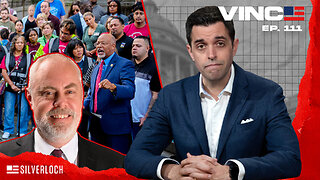 LIVE
LIVE
VINCE
2 hours agoThis Is How The Media Spins The News | Episode 111 - 08/26/25
31,067 watching -
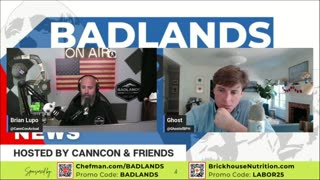 LIVE
LIVE
Badlands Media
7 hours agoBadlands Daily: August 26, 2025
3,112 watching -
 LIVE
LIVE
GritsGG
1 hour agoWin Streaking! Coloring Hair at End of Stream! Most Wins 3435+ 🧠
197 watching -
 LIVE
LIVE
Dear America
2 hours agoNO MORE BURNING FLAGS!! 🇺🇸 Trump Signs Order Making It ILLEGAL!! + Trump Is SUING NEWSOM!
3,882 watching -
 LIVE
LIVE
JuicyJohns
2 hours ago $0.23 earned🟢#1 REBIRTH PLAYER 10.2+ KD🟢
121 watching -
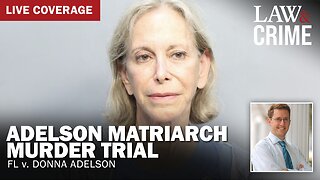 LIVE
LIVE
Law&Crime
1 hour agoLIVE: Adelson Matriarch Murder Trial — FL v. Donna Adelson — Day 3
163 watching -
 LIVE
LIVE
Major League Fishing
4 days agoLIVE! - Fishing Clash Team Series: Challenge Cup - Day 3
211 watching -
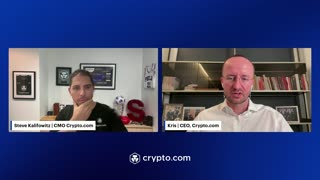 27:39
27:39
Crypto.com
1 hour ago2025 Live AMA with Kris Marszalek, Co-Founder & CEO of Crypto.com
2.66K -
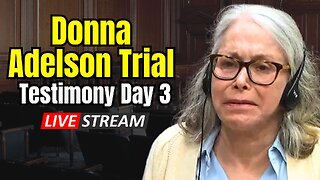 LIVE
LIVE
Surviving The Survivor: #BestGuests in True Crime
1 hour agoCourt Stream: Donna Adelson Trial DAY 3 of Testimony
79 watching -
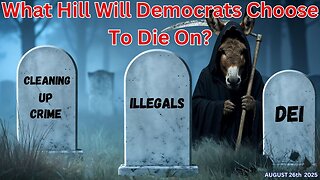 LIVE
LIVE
Wendy Bell Radio
5 hours agoWhat Hill Will Democrats Choose To Die On?
7,918 watching